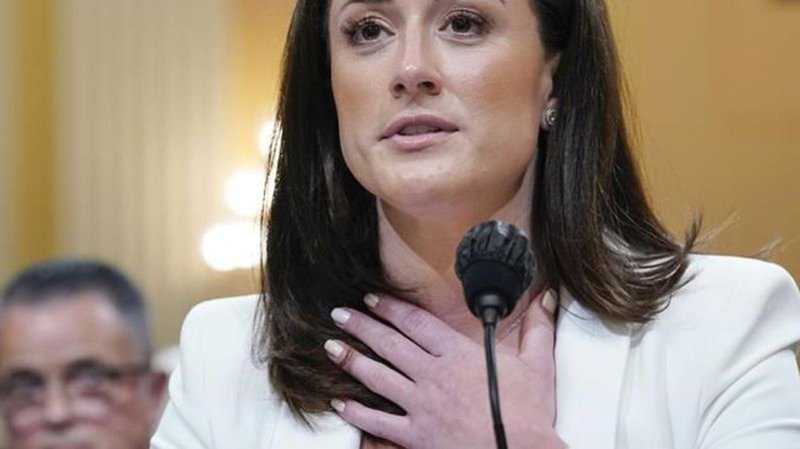
Jan. 6 witness recounts pressure campaign from Trump allies
WASHINGTON (AP) — Former White House aide Cassidy Hutchinson described to the House Jan. 6 committee a wide-ranging pressure campaign from Donald Trump’s allies aimed at influencing her cooperation with Congress and stifling potentially damaging testimony about him.
In extraordinary closed-door testimony made public Thursday, Hutchinson recounted how those in the former president’s circle dangled job opportunities and financial assistance as she was cooperating with the committee investigating the Capitol riot and how her own lawyer — a former ethics counsel in the Trump White House — advised her against being fully forthcoming with lawmakers and told her “the less you remember, the better.”
The nine-member committee released two never-before-seen transcripts of Hutchinson’s testimony as it tries to wrap up its investigation and make its work public. The committee, which will dissolve when Republicans take over the House on Jan. 3, was also expected to release its final report Thursday.
The transcripts provide previously unknown details about what Hutchinson called the “moral struggle” — torn between the desire to speak the truth and to remain loyal to Trump — that she says she endured on the way to becoming one of the most memorable witnesses of the committee’s investigation.
